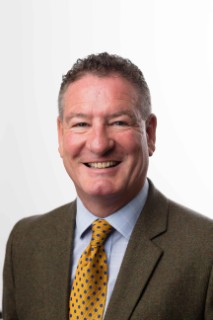It’s hard to overstate the importance of a job interview. It can be a real turning point in your career, even a pivotal point in your life. Yet many people continue to make the same mistakes over and over, not realising that simple tweaks to their interview etiquette could leave them with drastically different results. It’s so easy to make a bad impression and start your interview off on the wrong track, meaning you get overlooked for a job that would suit you perfectly. At CareerWise, we are experts in all things job-related. Here is our guide to the top ten things an interviewer dislikes when holding a job interview…

When you have a job interview, it’s imperative to look polished and professional. Of course, your attire may vary based on the position you’re applying for, however, it’s important to look well-dressed and put together, no matter what the position.
Running late shows a lack of respect for the company, the position and the interviewer. Being late also suggests poor management skills. Go the extra length to make sure that you aren’t late, and arrive on time, or even early. That way you’ll have some cushion time, for any unforeseen circumstances.
Understandably, some of your older experiences may be hard to recall. Review the facts before your interview. It can be helpful to keep a copy of your resume for yourself to refer to during your interview, but be careful not to use it as a crutch. You should never “lie” on your CV. The more truthful you are on your CV, the less chance you have of being unable to answer questions.
There’s no excuse for poor preparation. You should research the company, prepare your questions in advance and always bring a hard copy of your CV. The more prepared you are, the more your interviewer will take you seriously. Don’t let yourself zone out during an interview. Make sure you are well-rested, alert and prepared for your interview. It’s very easy to get distracted during an interview, but not paying attention can cost you.
When interviewing for a job, you want your employer to know that you can work well with other people and handle conflicts maturely and effectively, rather than badmouthing your co-workers or talking about other people’s incompetence. There are many ways to turn negative things about an old job into positives. For example “You thought your last job was a dead end”? Put a different spin on it by saying, “I felt I had gone as far as I could go in that position. I’m looking for a role that provides me with greater opportunities for advancement.”
With the influences of social and professional networks, it’s sometimes a smaller world than you may think. You don’t know who your interviewer might know, including that boss who is an “idiot”….
One tactic hiring managers use during the hiring process is to ask you the same question in several different ways. This is mostly to ensure that you’re genuine with your answers and not just telling an employer what he or she wants to hear. Keep your responses sincere throughout the entire process to avoid these pitfalls.
Most people know what they want in a job as far as benefits, compensation, time off, etc. If you’re unable to be flexible with some of your (possibly unrealistic?) expectations, you’re going to have a difficult time finding a job. Have a bottom line in terms of what you want before you start looking for a job and be willing to bend a bit if necessary.
There is nothing worse than someone who goes on and on in a job interview. The interviewer doesn’t need to know your whole life story. Keep your answers succinct, focused and to the point. Avoid rambling and simply answer the question. Likewise, it’s really hard to communicate with someone who answers a question with a word or two. Be responsive and fully answer the question.
If you don’t have achievable short-term goals then realistically your long-term goals will be unattainable. You need to have some concept of where you want to go in life. Be focused and most importantly, show you are motivated and dedicated to attaining these goals. Give them a clear understanding of your career hopes and expectations.
It’s very simple. “By failing to prepare, you are preparing to fail”. Good preparation is the key to staying in control. Remember to speak clearly, smile and remember that your interviewers are just normal people, and they may be nervous too!
CareerWise is Ireland’s leading specialist recruitment firm. Based in Cork, Shannon, Galway, Mayo and Dublin we can help you to find your ideal new job in Ireland. From interview tips to CV preparation, we can guide you through the recruitment process. We specialise in the Engineering, Supply Chain, Science/Pharma, IT and Accounting industries in Ireland, and we look forward to working with you. Contact us online now or call us at +353 (0) 21 206 1900 to arrange a consultation.

Joe Robbins is co-founder of CareerWise Recruitment. A graduate of the University of Limerick (Degree in Business Studies, 1985), Joe worked in the UK for five years where he specialised in materials management, production management and plant management for a number of companies.
He returned to Ireland in 1992 to become Operations Manager for a Cork-based start-up, FMC Automotive Division which was subsequently taken over by Snap-on Equipment. Joe managed the business re-location of this company to Shannon in 1997 before setting up CareerWise Recruitment in 1999.
He is a committee member of the Chartered Institute of Personnel and Development (CIPD) Mid-West region, and a former Director and Vice President of the Shannon Chamber of Commerce. Joe is former Chairperson of the Sixmilebridge Camogie Club and current Chairperson of the Clare County Camogie Board.
CareerWise Recruitment. EastGate Village, EastGate, Little Island, Cork.
Phone: +353 (0) 21 206 1900
Email: info@careerwise.ie